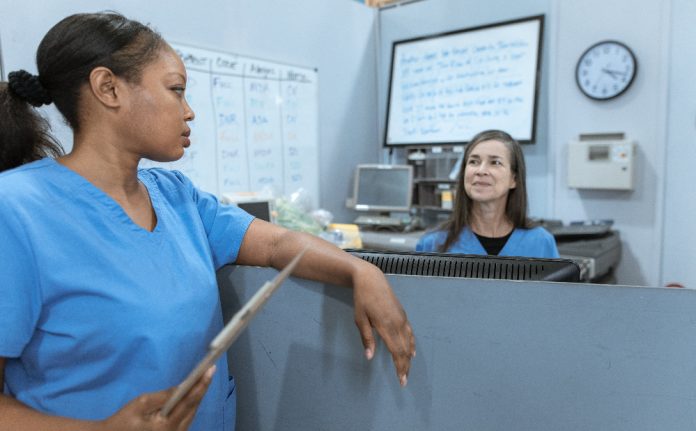A new study shows that nurse shortages are associated with worse health outcomes for surgical patients, including higher mortality.
In a paper for the British Journal of Surgery , published by Oxford University Press, researchers also find that lower than normal levels of nurse cover lead to longer hospital stays.
The Southampton team used surgical patient and staffing data from over 200,000 hospital admissions at four NHS Trusts to explore surgical patient outcomes between April 2015 and February 2020.
They found that in situations where nursing staff levels were below the mean (average) for the ward, this understaffing increased the relative risk of mortality by 9.2 percent with each day of low registered nurse numbers, and by 10.3 percent with each day of low levels of nursing assistants.
The study indicated shortages of registered nurses were associated with a 4.8 percent increase in deep vein thrombosis, a 5.7 percent increase in pneumonia, and a 6.4 percent increase in pressure ulcers.
It also showed understaffing increased the relative risk of readmission to hospital by 2.3 percent for nurse shortages and 1.4 percent for nursing assistants.
Doctors perform over 300 million surgeries each year worldwide. Observers have expressed concern about the quality of care for adult patients undergoing surgery and the rising cost of avoidable complications, extended hospitalisations, and readmissions. Some 55 percent of surgical site infections are preventable.
Until now safety interventions to address this have focused mostly on implementing checklists, staff training and improving teamwork.
“The safety of patients undergoing surgery is paramount and there is rightly a considerable emphasis on appropriate systems, policies, and procedures. Our research is a timely reminder that workload is also a major driver of risk and that risks to surgical patients persist beyond the immediate operative period,” commented Dr Paul Meredith , Senior Research Fellow in the School of Health Sciences at the University of Southampton.
He adds: “Adequate nurse staffing on wards is vital to ensure the safety of patients undergoing and recovering from surgery,”
The researchers conclude that staff shortages alone may be an important reason for infections and other adverse outcomes after operations. They hope this new study will help inform policymakers about the risks of understaffing and how to address this to best effect.







